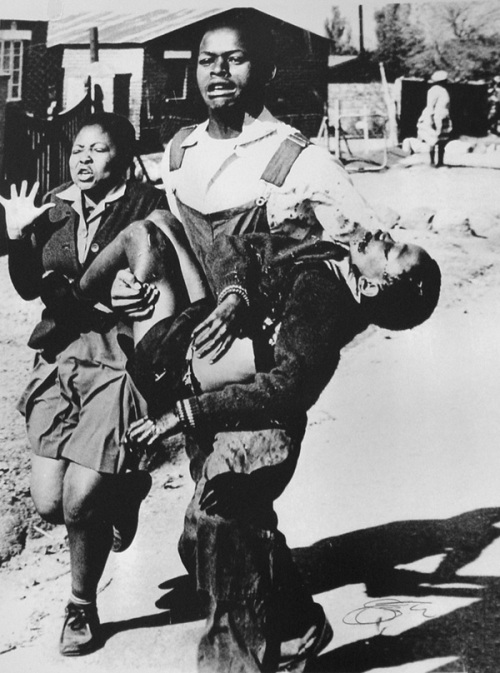As part of my writing life I visit a lot of schools and libraries – many of the children I meet are aged eleven, twelve and thirteen. An age at which children should be children with all the freedom that entails.
In Soweto in 1976, and in the rest of the country in the years beyond that, children were out on the streets facing grown men in uniform. Men armed with tear gas, rubber bullets and live ammunition. Children who were often the same age as the children in fifth and sixth Class that I now visit. Hundreds of schoolchildren, who left home that morning in their school uniforms, said goodbye to their parents, perhaps to their siblings and their grandparents and walked to their deaths. The next time their parents would see them would be in Baragwanath hospital or in the morgue.
Brave brave children who took on a system that was set up to humiliate them from birth. A system that ensured they would have no future. A system that had decided they should learn their subjects in Afrikaans in order for them to understand the ‘baas’ (boss, for those not from SA) when he gave them orders. A system that had declared they would be granted access to an education that would prepare them for a life as ‘hewers of wood and drawers of water’.
In June 1976 they took on that system and many of them died for it. The spark that started it was the issue of learning certain key subjects in Afrikaans (introduced in 1974) and this affected both teachers and pupils. The protest started off peacefully, around 15,000 students marched towards Orlando Stadium in Soweto – but police were waiting for them. It is best remembered by those who were there,and Independent Lens interviewed some of them in this short film . It is worth watching this if only to see the how young some of these little ones were who were taking on what was a very powerful state.
Soweto 1976 Independent Lens PBS
The picture, shown in the film, that has come to represent June 16th is of Hector Pieterson being carried in the arms of Mbuyisa Makhubu, with Hector’s sister at his side. Hector was dying. he was thirteen years old. He, along with Hastings Ndlovu, was one of those shot and killed in that initial volley of fire.
Mbuyisa’s face that haunts me in this picture. It haunts me because of what became of him.
A year after this photo was taken – an iconic photo by now – Mbuyisa went into exile. He has never returned. No one knows what has happened to him. Stories have been told of him in Nigeria, of him becoming unwell, of him dying – but to date his family do not know what became of him. His mother appeared before the Truth Commission – and her plea at the end of it was:
All of us are going to die but I do want to know how my child died and when did my child die. And I’ve come here because this is my last hope, that maybe the Commission could help me find out what happened to my child.
She died in 2004 never knowing what had happened to her son.



